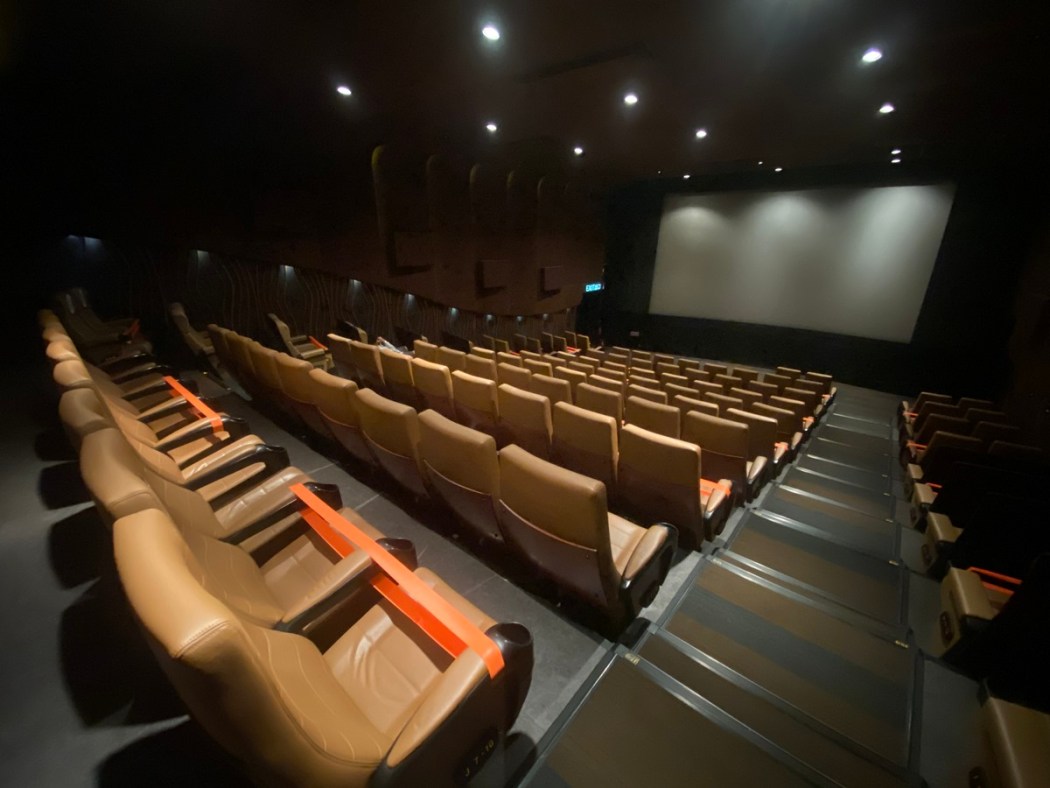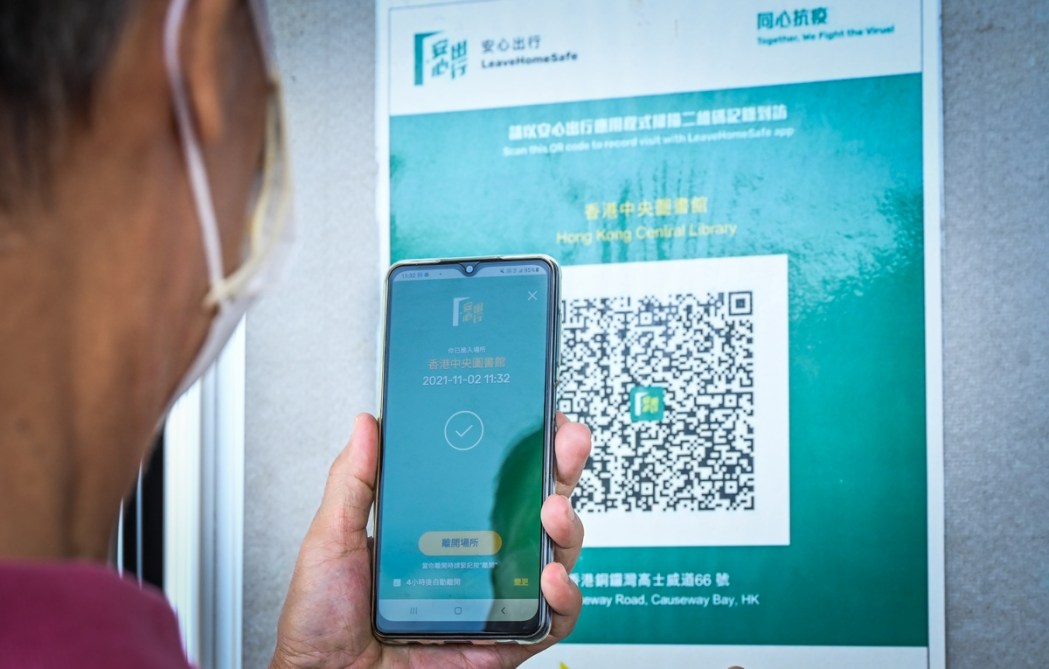Hong Kong awoke to a new round of Covid-19 social distancing measures on Friday, a response that authorities have called their most “ruthless” yet amid fears of an Omicron outbreak in the city.
But on the eve of the new curbs coming into force, restaurants, gyms and other affected businesses said told HKFP that they had only just recovered financially from the losses of last year and were not prepared to face more restrictions.

“We get most of our customers at dinner,” Suman Gole, a director at Flaming Frango in Kennedy Town, told HKFP on Thursday. “This shutdown will really hurt us.”
Hong Kong reported 33 new infections on Thursday, five of which were local infections traced back to imported cases. Later that evening, authorities locked down four buildings in Ap Lei Chau, Happy Valley, North Point and Ma On Shan to carry out compulsory Covid-19 testing for residents.
A cluster linked to the infected mother of a flight attendant has also expanded, with at least three people testing preliminary positive for the virus.
Caught off guard
Dining in at restaurants past 6 p.m. has been suspended starting Friday, while venues including bars, gyms, cinemas, beauty salons and pools have closed.

“The government will tighten social distancing measures to the most stringent level as seen during the third and fourth waves of the epidemic, with a view to reducing public traffic, social functions and crowd gatherings to the greatest extent,” a statement issued on Wednesday read.
The government said the restrictions will last two weeks and are due for a review on January 20, but Gole is not optimistic that the measures will be dropped then: “Last year, when they implemented the rules, they extended them again and again,” he said.
He added that Flaming Frango already experienced a setback in September when it was forced to close for two weeks after police said two people who dined there did not use the contact tracing LeaveHomeSafe app.

Meanwhile, at the Cooked Food Centre in Kennedy Town’s Smithfield Market, a stall manager surnamed Lee said his business will be hit especially hard because it only operates during dinner hours, meaning that – under the restrictions – the stall will shut entirely for the next two weeks.
Lee expressed frustration over the Wednesday’s abrupt announcements of the measures: “On Monday, [they] said that they weren’t going to ban dinner dine-in,” Lee told HKFP, referring to authorities’ clarification of online rumours that the city was about to impose sweeping restrictions amid Omicron fears. “Then, two days later, [the government] suddenly said they would.”

Lee said that the stall will pay workers’ salary as usual this month, but if they are still closed in February, they will be put on no-pay leave. “I told them that if they find another job, just take it,” Lee added.
The restrictions are a return to the tough measures implemented more than a year ago, when the city saw its fourth Covid-19 wave. Authorities banned dine-in services in mid-December 2020 and only relaxed the restrictions two months later in February, causing restaurants to miss out on business during the busy Christmas, New Year and Lunar New Year seasons.
A battered industry
Hong Kong has entered its third year of living with the pandemic. The recent outbreak began with a cluster at a restaurant in Kowloon Tong’s Festival Walk, where a Cathay Pacific flight attendant who broke quarantine rules ate dinner last Monday.

On Tuesday, the city said it recorded its first unlinked case since October, though the infection was later traced to a Tin Hau restaurant where they had breakfast with three other patients.
While restaurants will still be allowed to operate at a limited capacity, other businesses – among them gyms, party rooms, beauty parlours and sports premises – are completely shut.
Ikigai, a yoga and meditation studio, told HKFP that they predicted days ago that they might be forced to close due to authorities’ warning of a fifth wave.
“But we didn’t expect it would come that soon,” the studio’s co-founder Aymeric Vollant said.
The fitness industry is among the sectors that have borne the brunt of Hong Kong’s on-again, off-again restrictions. Aside from this closure, gyms have already endured three periods of months-long shutdowns since the start of the Covid-19 pandemic. The first was from March to May 2020, then just two months later in July to September, and most recently from December to February 2021.

With gyms allowed to stay open most of last year, Ikigai saw classes fill up again. The studio, which has a location in Central, opened a second, larger space in Causeway Bay in August.
“We thought [the shutdowns] were behind us, that things were just getting back to normal,” Gianni Melwani, also a co-founder, said. “Then we had the rug pulled out from under us. It’s a big blow.”
‘Verge’ of fifth wave
Announcing the restrictions on Wednesday, Chief Executive Carrie Lam said Hong Kong was on “the verge” of a fifth Covid-19 wave and that the city is “racing” to contain the spread of the virus.
“The Covid-19 situation has drastically changed over the past day, the drastic change has made us really worried about Hong Kong’s overall pandemic situation,” Lam said.

Melwani said he agrees that safety is a top priority, but wishes that the government’s policies can better strike a balance between welfare and “some sort of normalcy.”
The pair added that was little they can do to recuperate their losses. “There is absolutely zero revenue coming in when we are closed. What we can do is limited. Rent is one of the most expensive things and it’s not something we can control,” Melwani added.

Since the announcement, industry representatives and political groups have urged the government to sympathise with the predicament of businesses and offer subsidies to tide them over. In a Wednesday statement, Democratic Party economic policy spokesman Chan Po-ming called on the authorities to subsidise 14 days of rental and workers’ salaries for the affected businesses.
Asked how long they foresee the yoga studio remaining shut, Vollant said: “My heart says two weeks, but my brain says longer.”
Support HKFP | Policies & Ethics | Error/typo? | Contact Us | Newsletter | Transparency & Annual Report | Apps
Help safeguard press freedom & keep HKFP free for all readers by supporting our team

LATEST FROM HKFP
HKFP has an impartial stance, transparent funding, and balanced coverage guided by an Ethics Code and Corrections Policy.
Support press freedom & help us surpass 1,000 monthly Patrons: 100% independent, governed by an ethics code & not-for-profit.










